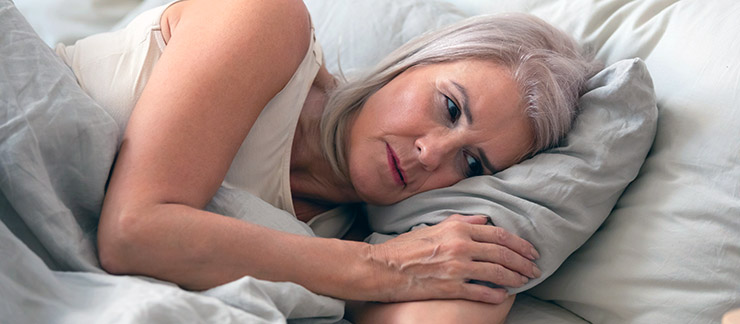
What Snoring May Mean for Your Senior’s Health
Snoring is a common nighttime occurrence for many people, but it can be quite a nuisance for anyone else nearby. If a senior loved one is snoring, it could be more than just an annoying disturbance. An underlying health issue may be the cause of chronic snoring, which can affect their sleep patterns, well-being, and overall quality of life.
Several conditions that cause snoring include:
- Congestion related to allergies or upper respiratory infections
- Excess tissue in the mouth and throat
- Excess alcohol consumption
- Narrowed nasal passages, which can sometimes relate to a deviated (crooked) nasal septum
- Sleeping in a position that narrows their airway
Although snoring is not always serious, it can sometimes indicate a sleep disorder called obstructive sleep apnea (OSA).
What is Obstructive Sleep Apnea (OSA)?
Obstructive Sleep Apnea (OSA), a disorder that occurs when muscles in the throat relax and narrow or block the airway, can cause breathing to stop and start during sleep. The blockage triggers a brief awakening and disrupts restful sleep. People who have severe sleep apnea can experience stops and restarts in their breathing up to 30 times an hour for the entire night.
Symptoms of OSA include:
- Loud snoring
- Excessive daytime sleepiness
- Noticeable pauses in breathing while sleeping
- Waking up gasping and choking
- A dry mouth, sore throat, or headache in the morning
- Mood changes, such as depression or irritability
- Memory problems
Another less common type of sleep apnea is central sleep apnea. Though not caused by blocked airflow, central sleep apnea occurs when the brain fails to send proper signals to the muscles that control breathing during sleep. When an individual experiences central sleep apnea and OSA, it is called “complex sleep apnea syndrome.”
If you suspect your older loved one has sleep apnea, schedule an appointment with a medical professional as soon as possible. A qualified physician will determine the root of your senior’s snoring issues and recommend the appropriate treatment.
How Can a Caregiver Help Seniors With Sleep Apnea?
As part of their sleep apnea treatment, seniors may need to make lifestyle changes such as:
- Losing weight
- Getting more exercise
- Quitting smoking
- Avoiding sleeping on their back
- Taking medications to reduce nasal congestion
An in-home caregiver can help seniors sleep safely and comfortably by reminding them to follow their doctor’s recommendations. A caregiver can also help promote a healthy lifestyle by preparing diet-friendly meals or encouraging older adults to enjoy walks or other healthy activities.
If a doctor prescribes a continuous positive airway pressure (CPAP) device or oral appliance, a caregiver can help your loved one use it correctly and clean it regularly.
Surgery is usually the last resort. If your loved one needs surgery to treat their sleep disorder, a personal caregiver will monitor their condition after the procedure to ensure they are recovering well.
Snoring is not always a severe problem in seniors, but scheduling a medical evaluation and reaching out for professional home care can help them get the rest they ultimately need.



